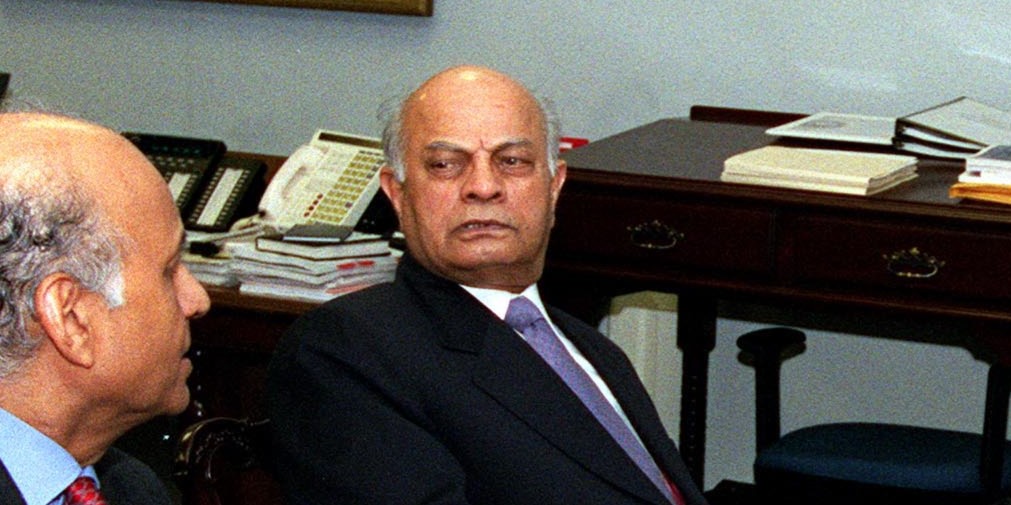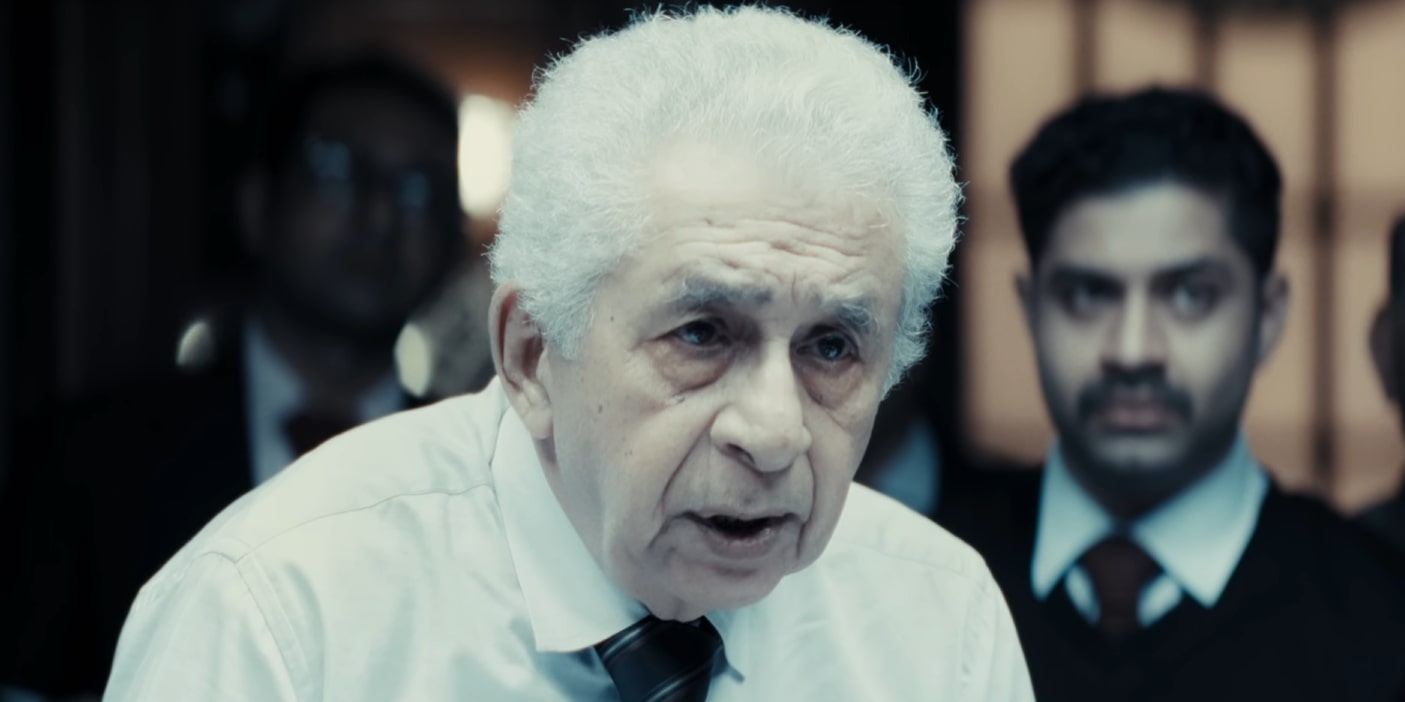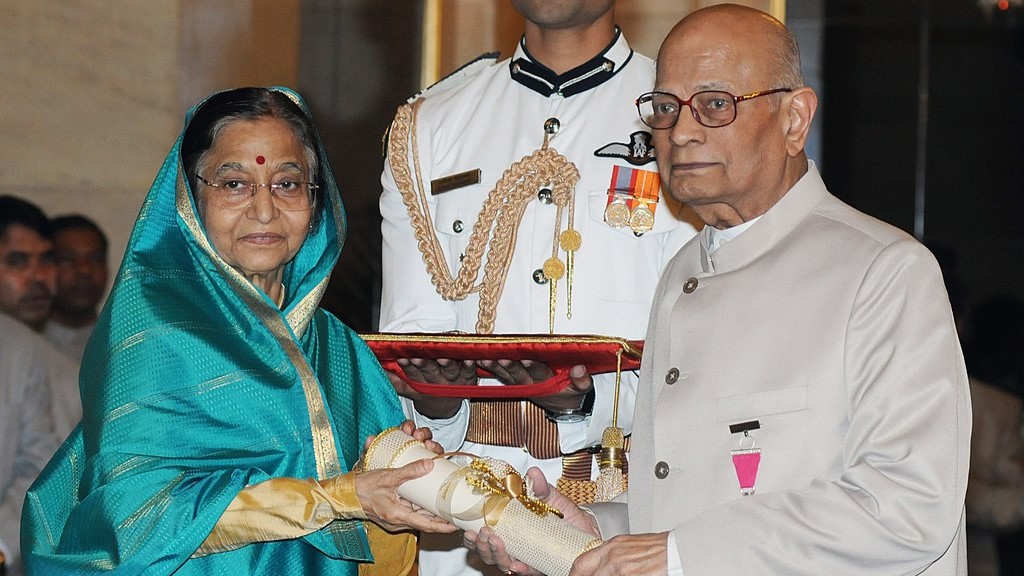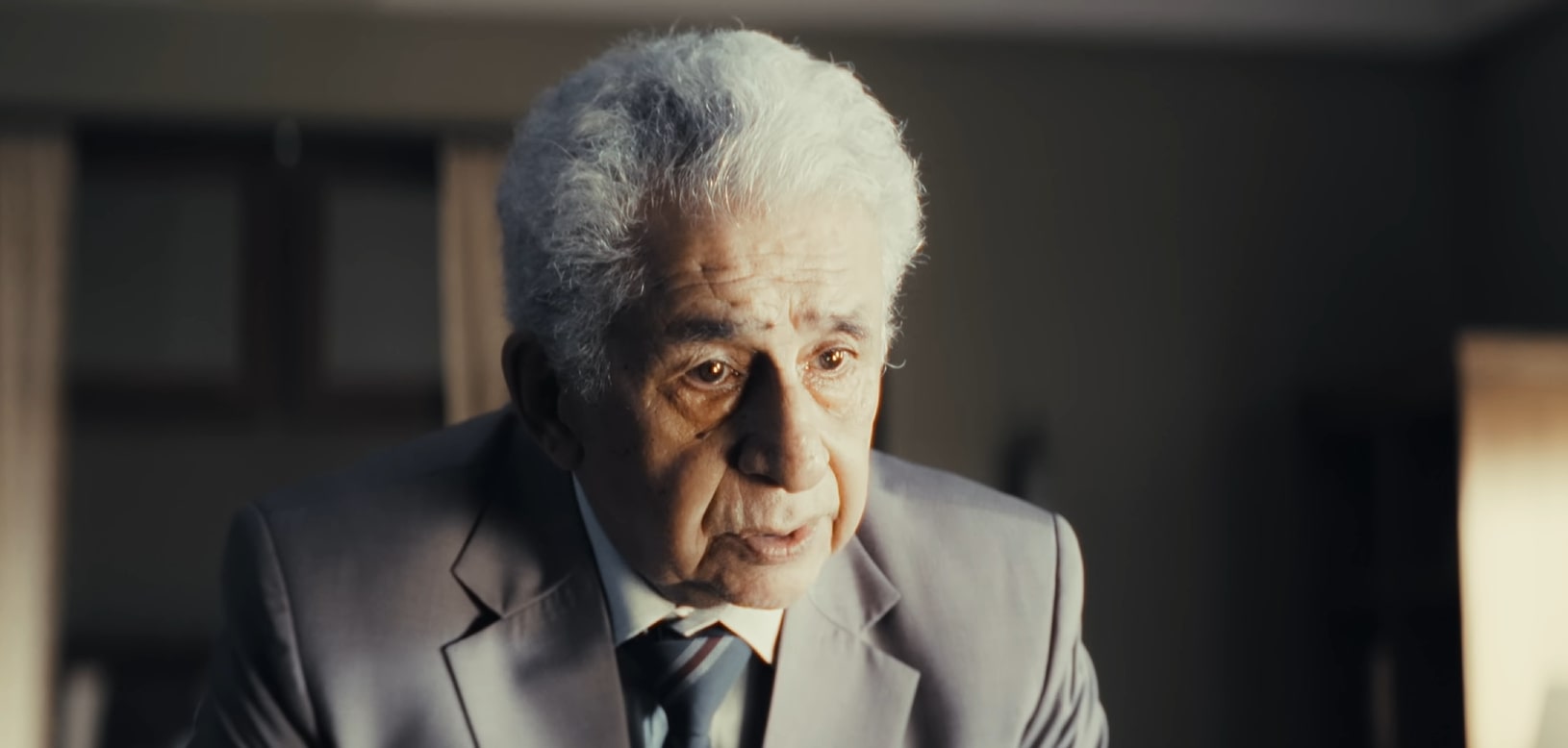With Anubhav Sinha and Trishant Srivastava at the helm, ‘IC 814: The Kandahar Hijack’ dramatizes the alarming true story of the 1999 IC 814 Hijacking. The Netflix show based on Devi Sharan and Sringjoy Chowdhury’s 2000 book, ‘Flight Into Fear,’ follows the events transpiring on the hijacked plane as well as the on-ground scramble for solutions. Much of the heavy lifting in this department is done by intelligence agents, with National Security Advisor (NSA) Vinay Kaul (Naseeruddin Shah) at the helm. A composed and pragmatic figure, Kaul serves to tether rash action and expectations while providing Foreign Minister Vijaybhan Singh (Pankaj Kapur) with situational clarity. The NSA is masterfully depicted by Naseeruddin Shah, his central role within the response team inspiring questions about his real-life counterpart.
Vinay Kaul is Based on Former NSA Brajesh Mishra
The character of Vinay Kaul embodies Brajesh Mishra, arguably the most powerful and influential principal secretary India has ever seen. The son of Dwarka Prasad, former Chief Minister of Madhya Pradesh, Mishra joined the Indian Foreign Service in 1951. After a long and illustrious career in the service, he retired and became a member of the Bharatiya Janata Party (BJP) in 1991 as the head of their foreign cell. When Atal Bihari Vajpayee was elected as Prime Minister in 1998, Mishra became his principal secretary and the first NSA of India.

In terms of the government’s foreign policy stance and strategy, Mishra’s word was final. He was among the key proponents who pushed for the 1998 Pokhran-II nuclear weapon test, reportedly souring relations with the US and its allies. However, his diplomatic expertise and pragmatic understanding also served to improve relations with the superpower within no time, an accomplishment marked by then-US President Bill Clinton’s 2001 visit to India. Mishra’s combination of the NSA and principal secretary positions, along with peerless troubleshooting skills, made Mishra far more influential than even the cabinet ministers.
Brajesh Mishra Organized the Crisis Management Group
As seen in the Netflix mini-series, Brajesh Mishra called the meeting of the Crisis Management Group (CMG) when he received word of the hijacking. Vijaybhan Singh, who stands in for then Foreign Minister Jaswant Singh, is the only politician the show depicts in the group. This was likely done for the sake of simplicity and also because he played a very crucial role in the incident out of all the cabinet ministers. Mishra actually coordinated the decision-making between most of the cabinet of ministers, the Prime Minister, the head of RAW, the head of NSG, and senior BJP leader Arun Shourie.

As conveyed in the series through phone calls, the CMG was unable to make snap decisions. It didn’t take proactive measures to dispatch NSG commandos to Amritsar airport once Lahore had turned away the hijacked plane. They opted to wait for NSG commandos to reach Amritsar airport even though Punjab Police Chief Sarabjit Singh conveyed that his commandos had training in anti-terrorism operations. The police force was left waiting on the tarmac for 40 minutes and were not informed of the CMG’s decision. The group believed that the plane had completely run out of fuel and did not expect it to take off after the hijackers became suspicious. Mishra was a policy strategist who could scope out macro trends in the long term but may have been out of his element in the fast-paced hostage situation.
Additionally, the nature of the CMG made it inherently difficult to arrive at quick and comprehensively thought-out decisions, especially within the bounded rationality trap. Ultimately, Mishra agreed that the Amritsar portion of the hijacking had scope for improvement on the government’s behalf but asserted that the final resolution in Kandahar was the only one to go for. “The only place where it could have been handled differently was in Amritsar,” said Mishra in a 2009 interview. “I don’t believe a word of any leader who says that he would have done it differently, that he would have not released the three terrorists to save the lives of 160 passengers on the plane. I dare anyone to say that.”
Brajesh Mishra Passed Away in 2012

The foreign policy czar stood tall in the Vajpayee government until it lost power in 2004. Despite the BJP subsequently opposing the NDA’s civil nuclear deal with the US, Brajesh Mishra rose above partisan politics and gave his blessing to the move, advising the Manmohan Singh government in its favor. In 2011, he was awarded the Padma Vibhushan, India’s second highest civilian honor. On September 28, 2012, Brajesh Mishra passed away from natural causes, one day short of his 84th birthday.
Read More: IC 814: Is Ranjan Mishra Based on a Real Person? Where is C.D. Sahay Now?


You must be logged in to post a comment.